เขา เป็น ใคร ภาษา อังกฤษ: ความลับและปริมณฑลของตัวตน
NỘI DUNG TÓM TẮT
- 1 ใครเป็นใคร นับญาติยังไง ภาษาอังกฤษ | Point Of View
- 2 เขา เป็น ใคร ภาษา อังกฤษ: Exploring the Meaning and Usage in English
- 3 การแนะนำ (Introduction)
- 4 แหล่งข้อมูลเพิ่มเติม (Additional Resources)
- 5 ความหมายของ เขา เป็น ใคร ภาษา อังกฤษ (Meaning of “เขา เป็น ใคร” in English)
- 6 การใช้วลีนี้ในประโยค (Usage in Sentences)
- 7 การแปล เขา เป็น ใคร จากภาษาอังกฤษ (Translating “เขา เป็น ใคร” from English)
- 8 ตัวอย่างประโยคที่ใช้วลีนี้ (Examples Using the Phrase)
- 9 ความสำคัญของการรู้เรื่องนี้ในการสื่อสาร (Importance of Knowing This in Communication)
- 10 การเรียนรู้ภาษาอังกฤษผ่านวลีนี้ (Learning English Through This Phrase)
- 11 วิธีการใช้ เขา เป็น ใคร ในสถานการณ์ต่าง ๆ (How to Use “เขา เป็น ใคร” in Various Situations)
- 12 FAQs (คำถามที่พบบ่อย)
- 13 สรุป (Conclusion)
- 14 เขาคนนั้นคือใคร ภาษาอังกฤษ
- 15 เธอคือใคร ภาษาอังกฤษ
ใครเป็นใคร นับญาติยังไง ภาษาอังกฤษ | Point Of View
Keywords searched by users: เขา เป็น ใคร ภาษา อังกฤษ เขาคนนั้นคือใคร ภาษาอังกฤษ, เธอคือใคร ภาษาอังกฤษ, คุณคือใคร ภาษาอังกฤษ สุภาพ, ผู้หญิงคนนี้คือใคร ภาษาอังกฤษ, มึงเป็นใคร ภาษาอังกฤษ, เขาคือใคร, เขา คือ อะไร, who is he แปลว่า
เขา เป็น ใคร ภาษา อังกฤษ: Exploring the Meaning and Usage in English
การแนะนำ (Introduction)
เมื่อเราพบกับคำวลี “เขา เป็น ใคร” ในภาษาไทย, มันอาจทำให้เกิดความสงสัยในใจเราเกี่ยวกับความหมายและวิธีการใช้ในภาษาอังกฤษเช่นกัน ในบทความนี้, เราจะสำรวจความหมายของวลี “เขา เป็น ใคร” ในภาษาอังกฤษและเสนอข้อมูลที่เป็นประโยชน์เกี่ยวกับการใช้งานในสถานการณ์ต่าง ๆ
แหล่งข้อมูลเพิ่มเติม (Additional Resources)
หากคุณต้องการเรียนรู้เพิ่มเติมเกี่ยวกับคำวลีนี้, คุณสามารถค้นหาข้อมูลเพิ่มเติมได้ที่ Longdo Dictionary และ Mixed English.
ความหมายของ เขา เป็น ใคร ภาษา อังกฤษ (Meaning of “เขา เป็น ใคร” in English)
คำวลี “เขา เป็น ใคร” ในภาษาไทยมีความหมายในภาษาอังกฤษเป็น “Who is he/she?” หรือ “Who are they?” มักถูกใช้เพื่อถามเกี่ยวกับตัวตนของคนหรือกลุ่มคนที่เราไม่รู้จักหรือต้องการทราบข้อมูลเพิ่มเติมเกี่ยวกับเขาหรือเธอ
การใช้วลีนี้ในประโยค (Usage in Sentences)
เขาคนนั้นคือใคร ภาษาอังกฤษ (Who is that person?)
เมื่อเราต้องการทราบเพิ่มเติมเกี่ยวกับคนที่เห็นอยู่หน้าหน้า, เราสามารถใช้วลี “เขาคนนั้นคือใคร” ในภาษาอังกฤษด้วยว่า “Who is that person?”
เธอคือใคร ภาษาอังกฤษ (Who is she?)
เมื่อเราต้องการทราบเพิ่มเติมเกี่ยวกับผู้หญิงที่อยู่ใกล้เรา, เราสามารถใช้วลี “เธอคือใคร” ในภาษาอังกฤษด้วยว่า “Who is she?”
คุณคือใคร ภาษาอังกฤษ สุภาพ (Who are you, politely?)
เมื่อเราต้องการถามตัวตนของคนท่านหนึ่งในทางที่สุภาพ, เราสามารถใช้วลี “คุณคือใคร” ในภาษาอังกฤษด้วยว่า “Who are you?”
ผู้หญิงคนนี้คือใคร ภาษาอังกฤษ (Who is this woman?)
เมื่อเราต้องการทราบเพิ่มเติมเกี่ยวกับผู้หญิงที่เราเห็น, เราสามารถใช้วลี “ผู้หญิงคนนี้คือใคร” ในภาษาอังกฤษด้วยว่า “Who is this woman?”
มึงเป็นใคร ภาษาอังกฤษ (Who are you? – Informal)
เมื่อเราต้องการถามตัวตนของคนท่านหนึ่งในทางที่ไม่เป็นทางการหรือไม่สุภาพ, เราสามารถใช้วลี “มึงเป็นใคร” ในภาษาอังกฤษด้วยว่า “Who are you?”
การแปล เขา เป็น ใคร จากภาษาอังกฤษ (Translating “เขา เป็น ใคร” from English)
เพื่อที่จะแปลวลีนี้จากภาษาอังกฤษไปยังภาษาไทย, เราสามารถใช้ “Who is he/she?” หรือ “Who are they?” เพื่อถามถึงความหมายของ “เขา เป็น ใคร” ในภาษาไทย
ตัวอย่างประโยคที่ใช้วลีนี้ (Examples Using the Phrase)
-
A: “เราเห็นคนนั้นที่ทางเดิน เขา เป็น ใคร?”
B: “ไม่รู้เลย, เราต้องการทราบเพิ่มเติม.” -
A: “มึงไปรู้จักเขาไหม?”
B: “ไม่, มึงเป็นใคร?” -
A: “เธอคนนี้คือใคร?”
B: “นางเอกจากละครทีวี.”
ความสำคัญของการรู้เรื่องนี้ในการสื่อสาร (Importance of Knowing This in Communication)
การทราบถึงการใช้วลี “เขา เป็น ใคร” ในภาษาอังกฤษมีความสำคัญในการสื่อสารประจำวัน. มันช่วยให้เราสามารถสอบถามเพื่อเข้าใจหรือแสดงความสนใจในตัวตนของคนท่านหนึ่ง. การใช้วลีนี้อย่างถูกต้องช่วยสร้างความสนใจและสร้างความสัมพันธ์กับผู้คนในทุกๆ สถานการณ์.
การเรียนรู้ภาษาอังกฤษผ่านวลีนี้ (Learning English Through This Phrase)
การใช้วลี “เขา เป็น ใคร” เป็นวิธีที่ดีในการฝึกภาษาอังกฤษ. เราสามารถฝึกการถามและการตอบด้วยวลีนี้เพื่อเสริมสร้างทักษะการสนทนาในภาษาอังกฤษ.
วิธีการใช้ เขา เป็น ใคร ในสถานการณ์ต่าง ๆ (How to Use “เขา เป็น ใคร” in Various Situations)
ในการทำความคุ้นเคย
- A: “เขา เป็น ใคร?”
- B: “เขาคือเพื่อนของฉัน, ชื่อเขาคือ John.”
ในการสอบถามที่ทางการ
- A: “ท่านคือผู้บริหารใช่ไหม?”
- B: “ใช่, ฉันคือผู้บริหารฝ่ายการตลาด.”
ในการแสดงความสงสัย
- A: “เขา เป็น ใครที่นั่งอยู่ที่นั่น?”
- B: “ไม่รู้, แต่ดูเหมือนเขามีความสำคัญ.”
FAQs (คำถามที่พบบ่อย)
Q: “เขา คือ อะไร?”
A: ในทางที่แท้จริง, การถาม “เขา คือ อะไร?” ไม่ได้ถามถึงตัวตนของคน แต่มักถูกใช้เมื่อเราต้องการทราบถึงความลึกลับหรือความหมายที่ไม่ชัดเจนในบางเรื่อง.
Q: “Who is he แปลว่า?”
A: “Who is he?” แปลว่า “เขา เป็น ใคร?” ในภาษาไทย.
Q: ทำไมคำวลีนี้ถึงสำคัญในการสื่อสาร?
A: การใช้ “เขา เป็น ใคร” ช่วยให้การสื่อสารเป็นไปได้อย่างราบรื่น, สนุกสนาน, และสร้างความสนใจในการแลกเปลี่ยนข้อมูล.
Q: วิธีการฝึกทักษะการสนทนาในภาษาอังกฤษในระดับพื้นฐาน?
A: ใช้ “เขา เป็น ใคร” ในการสอบถามและตอบเพื่อฝึกทักษะการสนทนา. ลองสร้างประโยคที่ใช้วลีนี้ในสถานการณ์ต่าง ๆ เพื่อเพิ่มความคุ้นเคย.
สรุป (Conclusion)
การทราบถึงความหมายและวิธีการใช้วลี “เขา เป็น ใคร” ในภาษาอังกฤษเป็นสิ่งสำคัญที่สามารถช่วยให้การสื่อสารของเราเป็นไปได้อย่างราบรื่นและสนุกสนาน. การใช้วลีนี้ในสถานการณ์ต่าง ๆ ช่วยสร้างความสนใจและความเข้าใจในการแลกเปลี่ยนข้อมูล. ทำความเข้าใจถึงที่มาและการใช้งานของวลีนี้จะทำให้เราเป็นผู้สื่อสารที่เก่งและน่าสนใจ.
Categories: แบ่งปัน 56 เขา เป็น ใคร ภาษา อังกฤษ

Who’s he? เขาคือใคร Fever (2007)
เขาคนนั้นคือใคร ภาษาอังกฤษ
เขาคนนั้นคือใคร ภาษาอังกฤษ: Unraveling the Mystery in the Thai Language
Introduction:
The phrase “เขาคนนั้นคือใคร” translates to “Who is he/she?” in English. This seemingly simple question often holds a veil of mystery, prompting curiosity and the desire to uncover the identity of the person in question. In this article, we will delve deep into the intricacies of this Thai expression and explore various contexts in which it is commonly used. Additionally, we will provide insights into its English equivalent and shed light on the cultural nuances that accompany this enigmatic query.
Understanding the Expression:
“เขาคนนั้นคือใคร” is a versatile phrase used in Thai conversations to inquire about the identity of a person. It can be employed in various scenarios, ranging from casual encounters to more formal settings. The literal translation is “He/she, who is?” where “เขา” means “he” or “she,” “คนนั้น” means “that person,” and “ใคร” means “who.”
In-Depth Usage and Examples:
-
Casual Conversations:
In everyday interactions, Thais might use this expression when discussing someone unfamiliar or when a name is mentioned without prior context. For instance, if a friend talks about a colleague, one might respond with “เขาคนนั้นคือใคร?” to seek clarification on the person being discussed. -
Professional Settings:
In professional settings, the phrase can be employed to seek information about individuals mentioned during meetings or presentations. It reflects a desire for clarity and understanding, ensuring that everyone is on the same page regarding the people involved in the discussion. -
Cultural Significance:
Thai culture places a strong emphasis on interpersonal relationships and social connections. Asking “เขาคนนั้นคือใคร” goes beyond a mere quest for information; it demonstrates a genuine interest in the people who play a role in someone’s life or a particular situation.
English Equivalent and Cross-Cultural Communication:
While the direct translation of “เขาคนนั้นคือใคร” is “Who is he/she?” in English, it’s essential to note that language is deeply tied to culture. The English equivalent captures the literal meaning but may not fully convey the cultural nuances embedded in the Thai expression. Cross-cultural communication requires an understanding of these subtleties to facilitate meaningful and respectful interactions.
FAQ Section:
Q1: Is “เขาคนนั้นคือใคร” only used for people?
A1: While the literal translation refers to a person, the phrase can also be adapted to inquire about the identity of objects or entities in specific contexts. However, it is primarily used for individuals.
Q2: Are there variations of this expression in different Thai regions?
A2: The core structure remains consistent, but there might be slight variations or regional nuances in the way people phrase similar questions. However, the overall meaning remains unchanged.
Q3: Can this expression be considered formal in Thai language?
A3: While it can be used in various settings, “เขาคนนั้นคือใคร” is generally more neutral than formal. In formal situations, additional polite expressions may be added to convey respect.
Q4: How can non-native speakers effectively use this expression in conversation?
A4: Non-native speakers can use this expression inquisitively, showing interest in learning more about the people mentioned in a conversation. It’s a great way to engage with Thai speakers and deepen connections.
Conclusion:
In conclusion, “เขาคนนั้นคือใคร” encapsulates a rich cultural and linguistic tapestry within the Thai language. Its usage extends beyond a mere inquiry about someone’s identity, embodying the essence of Thai interpersonal communication. As language enthusiasts explore the depth of linguistic expressions, understanding the cultural context becomes paramount for effective cross-cultural communication.
References:
เธอคือใคร ภาษาอังกฤษ
เธอคือใคร ภาษาอังกฤษ: Exploring the Depths of Thai Pronouns in English
Introduction:
The Thai language is rich in nuances and cultural subtleties, and one aspect that often perplexes learners is the use of pronouns. One such intriguing pronoun is “เธอ” (pronounced “ter”), which translates to “you” in English. However, the depth of its meaning and usage goes beyond a simple translation. In this article, we will delve into the intricacies of เธอคือใคร ภาษาอังกฤษ, exploring its cultural implications, variations, and providing a comprehensive guide for learners of both Thai and English languages.
Understanding เธอ:
เธอ is a second-person singular pronoun used to address someone with familiarity and closeness. It is often employed in informal settings among friends, family members, or individuals of similar age and social standing. Unlike the more formal “คุณ” (khun), เธอ carries a sense of intimacy, reflecting a personal connection between the speaker and the listener.
Cultural Nuances:
The use of เธอ reflects the cultural emphasis on relationships and hierarchy in Thai society. Addressing someone with เธอ implies a level of closeness and mutual understanding. It is crucial for learners of the language to grasp these subtleties, as misusing pronouns can lead to unintended disrespect or formality.
Variations and Contextual Usage:
While เธอ is commonly used, there are variations based on the speaker’s gender. For male speakers, เธอ remains the appropriate choice, but female speakers may use “กู” (pronounced “goo”) when addressing close friends. This illustrates the gender-specific variations in Thai pronouns, emphasizing the importance of understanding social dynamics and context.
Mixing Thai and English Pronouns:
In contemporary Thai society, especially among the younger generation, there is a trend of mixing Thai and English pronouns. This fusion is influenced by globalized communication and the widespread use of English in various contexts. For example, a sentence might seamlessly blend เธอ with “who” or “you,” creating a unique linguistic expression.
Common Phrases and Expressions:
To further understand เธอคือใคร ภาษาอังกฤษ, let’s explore common phrases and expressions that incorporate this pronoun:
- เธอคือใคร? (ter keu krai?) – Who are you?
- เธอยังจำฉันได้ไหม? (ter yang jam chan dai mai?) – Do you still remember me?
- ทำไมเธอไม่ตอบกลับ? (tam mai ter mai dtob glap?) – Why aren’t you answering?
These phrases showcase the versatility of เธอ in various conversational contexts.
FAQ Section:
Q1: Is เธอ only used among friends and family?
A1: While เธอ is often used in informal settings, it can also be employed between romantic partners or individuals with a close bond.
Q2: Can เธอ be used in professional settings?
A2: It is generally advisable to use more formal pronouns like “คุณ” in professional or formal settings to convey respect and maintain proper etiquette.
Q3: Are there other pronouns similar to เธอ in Thai?
A3: Yes, “กู” is a similar pronoun used among friends, especially by males. However, its usage may be considered more casual or colloquial.
Q4: How do I know when to use เธอ or other pronouns?
A4: Understanding the relationship between the speaker and the listener, as well as the cultural context, is crucial. Pay attention to social cues and adapt your language accordingly.
Conclusion:
เธอคือใคร ภาษาอังกฤษ is a fascinating exploration of Thai pronouns, shedding light on the interconnectedness of language and culture. By grasping the nuances of เธอ, learners can navigate social interactions with greater confidence and cultural sensitivity. As language continues to evolve, the blending of Thai and English pronouns exemplifies the dynamic nature of communication in our interconnected world. Embrace the richness of language, and let เธอ guide you through the intricate tapestry of Thai communication.
รวบรวม 43 เขา เป็น ใคร ภาษา อังกฤษ


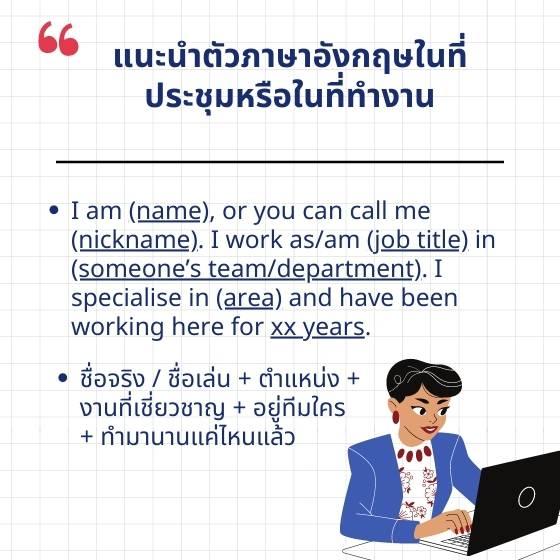




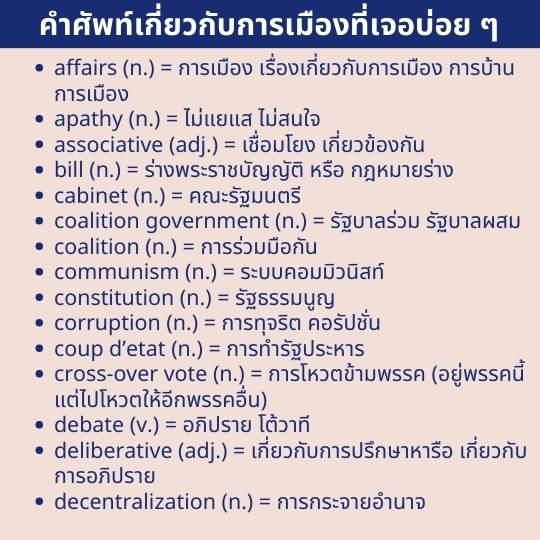

![Engest] มาอีกแล้วจ้า สำหรับคำศัพท์ภาษาอังกฤษวันนี้ เพจอิ๊งเจสขอเสนออคำว่า audacity คำนี้หมายถึง ความกล้า (ในเรื่องที่ไม่น่ากล้า) ความไร้มารยาท หรือเมื่ออยู่ในปริบทๆหนึ่งหรือประโยคๆหนึ่งแล้วส่วนมากจะแปลง่าย Engest] มาอีกแล้วจ้า สำหรับคำศัพท์ภาษาอังกฤษวันนี้ เพจอิ๊งเจสขอเสนออคำว่า Audacity คำนี้หมายถึง ความกล้า (ในเรื่องที่ไม่น่ากล้า) ความไร้มารยาท หรือเมื่ออยู่ในปริบทๆหนึ่งหรือประโยคๆหนึ่งแล้วส่วนมากจะแปลง่าย](https://t1.blockdit.com/photos/2021/09/6150417f0966a90c8f73d31f_800x0xcover_0b0fcH38.jpg)
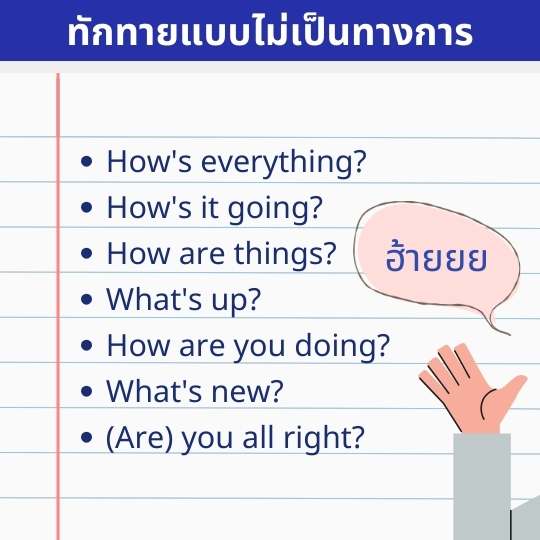


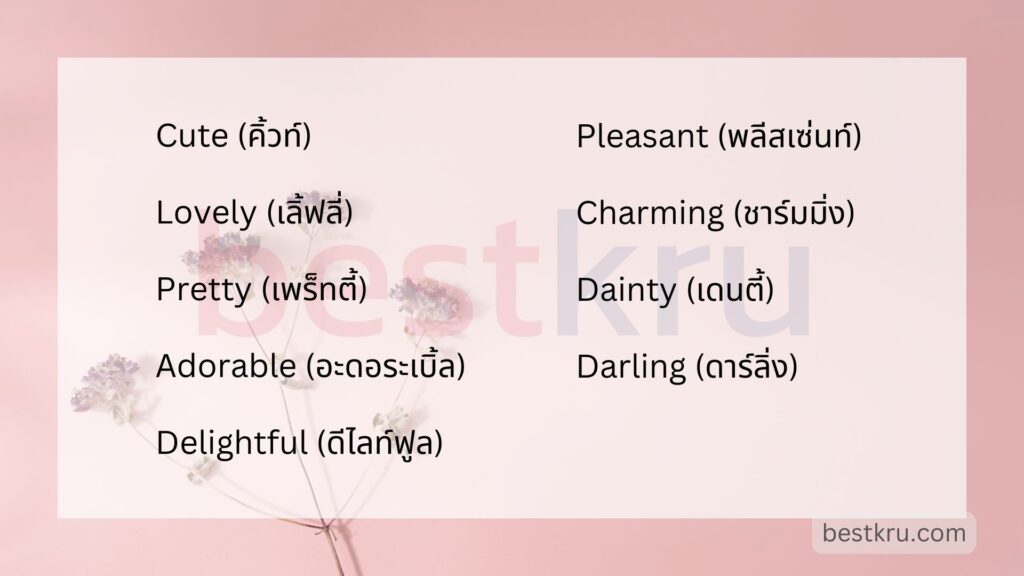


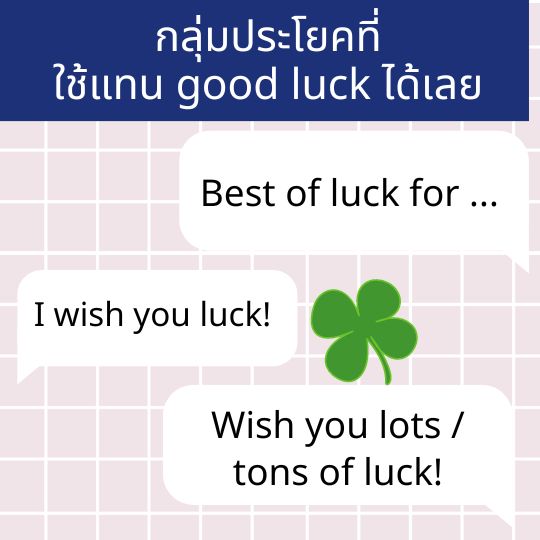
See more here: kientrucxaydungviet.net
Learn more about the topic เขา เป็น ใคร ภาษา อังกฤษ.
- *เขาคือใคร* แปลว่าอะไร ดูความหมาย ตัวอย่างประโยค หมายความว่า …
- เขาเป็นใคร (khao pen khain) แปลว่า – การแปลภาษาอังกฤษ
- ภาษาอังกฤษ “Who Is He?” : “เขาคือใคร” / “He Is a Burglar.”
- “ใครเนี่ย” “มันเป็นใคร” “นี่คือใคร” “ใครคะ/ครับเนี่ย”(Who Is It?)
- พวกเขาเป็นใคร แปลว่า – การแปลภาษาอังกฤษ
- หลักการใช้ Who เป็นคำถาม และเป็นคำเชื่อมประโยค มี …
See more: kientrucxaydungviet.net/category/%E0%B8%82%E0%B8%B2%E0%B8%A7%E0%B8%A5%E0%B8%B2%E0%B8%A7